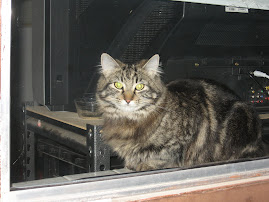To learn more about the Millenium Development Goals, go to: youthink.worldbank.org/issues.
People say the scum of the earth live in this village. How can we call another human being scum, as though one could step on another like a boot on trodden ground, to crush another as easily? Meanwhile, human beings, no matter their label, breathe and feel and struggle alike.
I believe this addresses the heart of what is at stake in the Millenium Development Goals: human dignity. How much do we bestow by respecting one another and how much do we cheat one another? I thought dignity was a possession both innate and self-determined. But if a human being defines his or her worth according to a community, as in the developing world, what responsibility has the world community in bestowing such dignity?
I live in Belize as a Peace Corps Volunteer. I stand out as a gringa. What I represent upon sight has already been determined for me by the world. The approach of Peace Corps isn't immediately to gloss it over and make everything shiny and clean and right. How can we pare away the layers of perception we have of one another to appreciate the basics?
We live side by side. We see that we can be friends, and we teach each other. In so doing, we claim our own dignity as human beings and support the dignity of others and the larger community.
What is the significance of human dignity in the world today? I know a young Nicaraguan family here of which the mother and father work ten hours six days a week, their five-year-old daughter caring for her younger brother all day. They cannot afford to send her to school. Each parent makes only $2.25 per hour on a banana farm, while food is priced congruously to that in the United States. A pound of tomatoes costs $4.50; a box of cereal, $8.75; a jar of peanut butter, $5.25; a papaya, $3.00; a head of lettuce, $7.00. Consequently, people eat rice and beans everyday in Belize. This is basic.
So, how does this family, hard-working, trustworthy, and upstanding, conceive of justice and equality among human beings? How do they view me and conceive of the contrasts between people in this world when chancing to glimpse even one of my possessions, such as a Chaco sandal? Or a headlamp, which would be quite useful for late night trips to the latrine? Or a mosquito net, which was issued to me and which they cannot even find to buy here?
Poverty and wealth are relative to some extent, and happiness does not reside in riches. But where is the line defining the basics and human dignity from the whole of resources humankind utilizes and enjoys?
As a health education volunteer, I coordinated a self-esteem activity for several groups of primary schoolchildren in Belize because I believe human dignity is central to overall health and well being. The children didn't know the word in English, Spanish, or Kriol. I will post clips of a few responses when I find a CD Rom that actually works.
Subscribe to:
Post Comments (Atom)









5 comments:
love love LOVE this post...it speaks so clearly to what my heart is crying out for right now...wow, its nice to have another's perspective/point of view that reside on another country/continent...keep on pushin...
Thanks for these well-written thoughts from the heart, April. The social inequality and injustice is problematic on a spiritual level too sometimes. I was talking with my neighbor recently about faith in Jesus, but his primary barrier to accepting the existence and love of God seems to be the suffering and injustice he sees in the world around him. So when we try to relieve social injustice, we're actually working too display the love of Christ too.
wow, April. I echo Laura -- thank you for this post.
i hope you're planning to write a book of your experiences. :)
Post a Comment